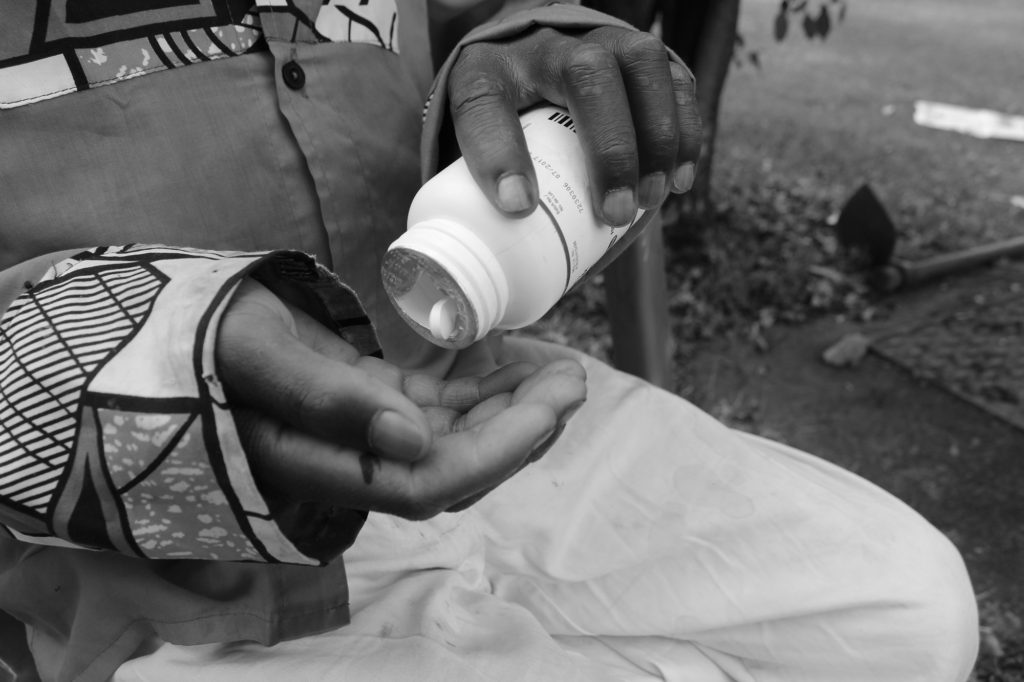A Conversation with Africaid on Award-Winning Social Protection Project in Zimbabwe
Last year, the Coalition for Children Affected by AIDS and ViiV Healthcare’s Positive Action awarded $40,000 in grants to eight organizations that could show how the use of social protection supports HIV testing, treatment, and care for children in low- or middle-income countries. Each winner received $5,000 to produce a scientific article, video, or written case study to show what works.
One of the winning proposals was submitted by Africaid to document its Zvandiri program in Zimbabwe. Part of that documentation included a 10-day storytelling workshop held in October with young people affected by HIV. The Coalition spoke to Zvandiri’s founder and Executive Director, Nicola Willis, who oversees the project on the ground in Harare.

Q: Can you explain how your Zvandiri model works?
The model has been developed over the course of 15 years, with the aim of supporting people up to 24 years old who are affected by HIV. The model not only focuses on testing and treatment, but also on the mental health and general wellbeing of children and young people. We recognize that mental health and social wellbeing are directly linked to health outcomes, and our goal is for them to access all the services they need.
We provide a continuum of services which are integrated within the clinical care provided by health facilities, including community and clinic-based support, support groups and facility-based, as well as information sharing, counseling, monitoring and follow-ups through SMS messages and phone calls. The Zvandiri program is currently being implemented in 53 districts (of 63) in Zimbabwe.
Q: Who is helping to run the program at the local level?
Zvandiri is mainly led by young people, 18 to 24 years old, who are living with HIV themselves. We call them CATS, which stands for “community adolescent treatment supporters.” Zimbabwe’s Ministry of Health and Child Care (MoHCC) and Africaid trains and mentors them as peer counselors.
The CATS start by distributing HIV self-test kits to young people who are at risk. Those who test positive are registered with Zvandiri and referred to local clinics for treatment and care, while those who test negative are linked to HIV prevention services. CATS get a $20 monthly stipend, along with bikes and mobile phones for their data entry. They manage caseloads of up to 60 children and young people living with HIV, whom they support through home visits, support groups and adolescent days, clinic visits and mobile health. When we started the CATS component of the program in 2009, we had 10 CATS; today that number has grown to 1,100 CATS. They support 45,000 children and adolescents each month.
Q: What kind of results have you seen from the program?
Our program and research data shows adolescents engaged in Zvandiri have improved outcomes across the HIV cascade, including HIV testing, psychosocial well-being, and ART initiation, retention and adherence. In the Zvandiri Trial, we found that adolescents receiving CATS services were 42% more likely to be virally suppressed than those receiving standard of care alone.
We are also just finalizing a trial to explore the feasibility and effectiveness of a peer-led mental health intervention to improve viral suppression and mental health among adolescents living with HIV. The results should be available in September 2020.
Q: Why did Africaid decide to do a storytelling workshop?
We’ve always been interested in finding creative ways to help young people affected by HIV to work through their experiences as well as supporting their peers. Africaid has hosted storytelling workshops in the past, and we found it was an incredibly therapeutic process that also allowed youths to share with their families. Participants have the opportunity to learn digital storytelling skills as well.
Africaid is also looking to amplify the voices of young people, so more policymakers and funders have an opportunity to hear their stories. We thought a storytelling workshop was a great way of getting these messages out to people who may not listen otherwise.
Q: What was the outcome of the October workshop?
Ten young people were chosen to attend the workshop, which took place over 10 days in Harare. We started by explaining the importance of storytelling, and then we asked them to write down their stories. Next, we helped them craft videos using audio, photos, and other multimedia elements. When Zimbabwe went into lockdown, we couldn’t continue with face-to-face editing, so we have worked with the youth over the phone and SMS to finalise their films. With help from ViiV and the Coalition, we hope these videos can become compelling advocacy tools, as well as a source of inspiration for other young people affected by HIV.
Watch all the films produced during Africaid’s storytelling workshop, and learn more about the Zvandiri programme here.